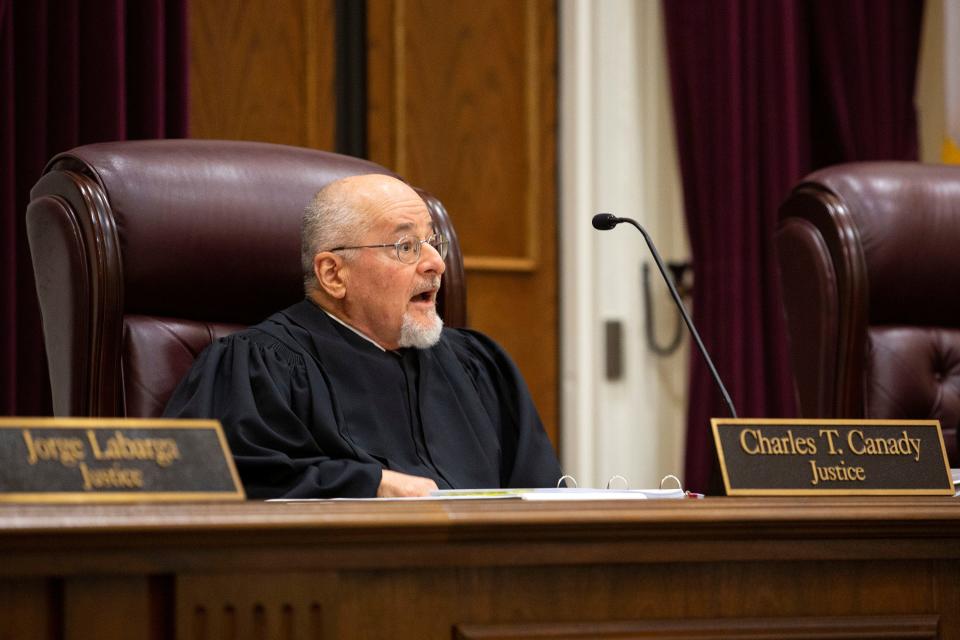Florida's Marsy's Law may give crime victims privacy but it's undermining trust in cops
We're No. 33: It may come as a surprise but it's Florida's open-records law that keeps the state's middle-of-the-road ranking in the Police Scorecard Project study from being worse. Thanks to transparency, the public gets to see how well — or poorly — law enforcement uses force, an extraordinary power of life and death, to curb crime. Unfortunately, Marsy's Law could change that — for the worse.
The issue here isn't police conduct but access to public information. Marsy's Law is part of the Florida Constitution and protects the privacy of crime victims. But several law enforcement agencies have used it to make it more difficult for the public to obtain the records of controversial and dubious police cases.

More: Frank Cerabino: Florida police who use deadly force claim crime-victim status under Marsy's Law
Lifting the scorecard ranking would be nice but the public's trust in law enforcement is far more important. Marsy's Law was sold as a reform in 2018 but has morphed into a problem today. State legislators must address that.
The Police Scorecard Project rankings come from data collected between 2010 and 2021 and are the composite of four categories — "funding/financial cost," "police violence," "accountability" and "approach to policing." The higher the score, the better the policing. Florida's overall 33rd ranking was bolstered by a respectable 61% score in "police violence," which measures how often agencies used higher levels of force.
The state ranked 41% in "funding/cost" category, which examines resources spent on policing versus other issues that might impact crime, like public health housing and homelessness, and 45% in "approach to policing," which measures whether agencies focus more on low-level or more serious crimes. The 25% rating in "accountability," which evaluates how civilian complaints are handled by law enforcement, didn't help.
Kentucky, Maine, Mississippi, Idaho and South Carolina were the top five states in overall rankings.
A 2020 probe by USA Today and ProPublica found at least half of Florida's 30 largest police agencies said they apply the law to shield the names of on-duty officers involved in controversial cases, including one that resulted in a 15-year-old boy being sent to the hospital and officers who sicced K9 dogs on drunk and mentally ill people. Lifting the scorecard ranking would be nice, but the public's trust in law enforcement is even more important.
More: POINT OF VIEW: Marsy’s Law crucial for Florida crime victims
Court surprises with Marsy's Law ruling
Marsy's Law may undergo change but not in the way many expected. The Florida Supreme Court surprised many in a ruling that found law enforcement can't expect blanket anonymity under Marsy's Law. The ruling came in a case involving the city of Tallahassee, which wanted to release the names of two officers who in two separate incidents fatally shot armed suspects.
A grand jury cleared both officers but the union sought an injunction, citing Marsy's Law as a legal rationale to keep the officers' identities secret. The case made its way to the High Court, where many observers thought the conservative court would back police.
It didn't happen. In a unanimous ruling, the justices cited the constitutional right of the accused to confront accusers. They also cited with state government-in-the-sunshine provisions to upend Marsy's Law as a shield to hide the names of victims. Don't expect that ruling to stand though. The ruling opens the door for the Florida Legislature to pass a public records exemption that would again keep the names and any other pertinent information away from the public.
A public records exemption is the wrong response. It's the access to public information beyond the Police Scorecard that will boost public confidence in law enforcement agencies.
CONSIDER THE SOURCE: The Police Scorecard Project calculates levels of police violence, accountability, racial bias and other policing outcomes for over 16,000 municipal and county law enforcement agencies throughout the U.S. The project uses data from police departments and information from federal databases that track crime, arrests, and financial and personnel records.
Editor's Note: RANKING FLORIDA is a series of editorials using national rankings to show where the state of Florida stands on a variety of issues that resonate with Floridians.
This article originally appeared on Palm Beach Post: Florida's Marsy's Law undermining public trust in law enforcement

